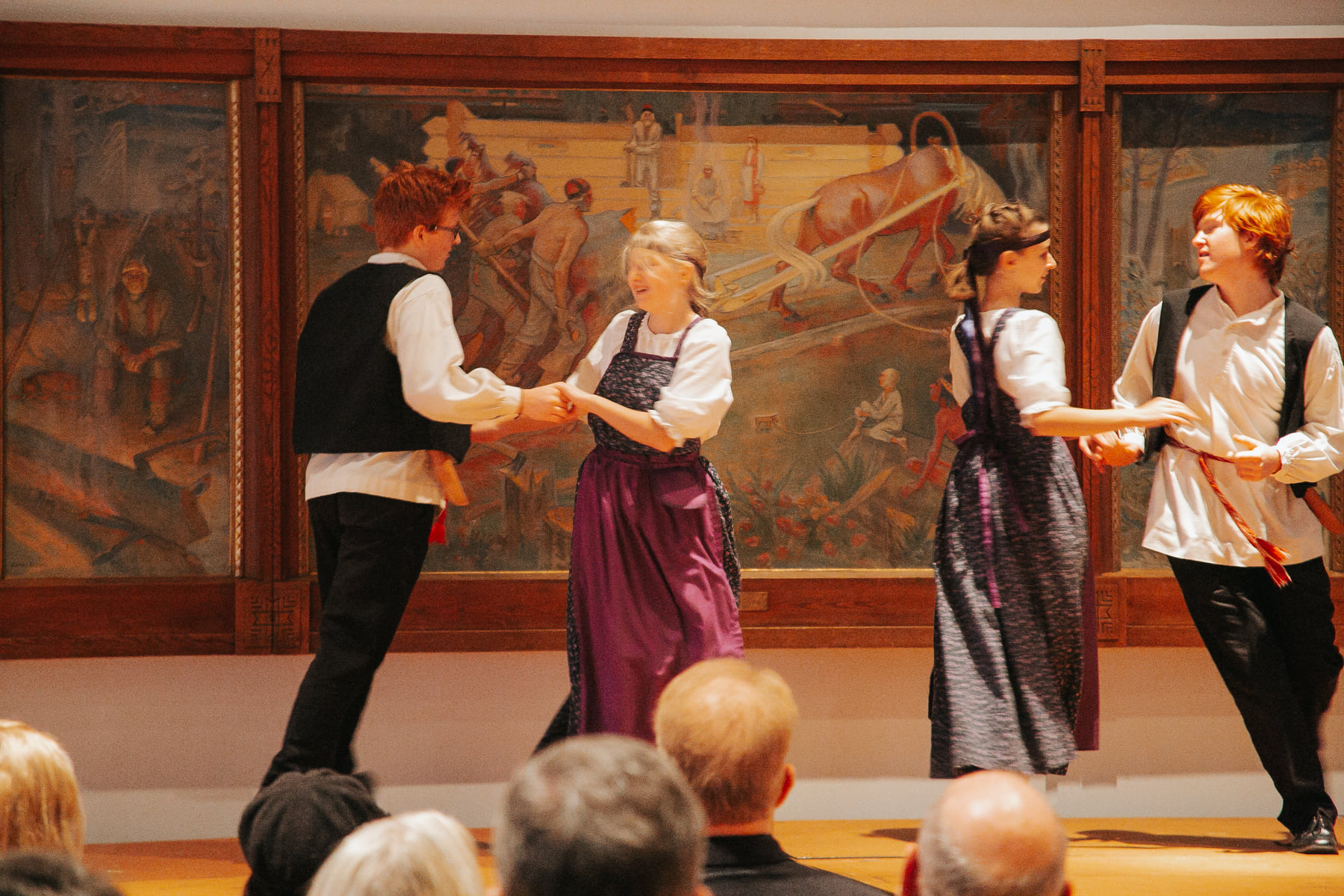A Procedure to Estimate the Energy Requirements for Lighting
Topology of Continuous Availability for LED Lighting Systems

IEEE Education & Healthcare Facilities Committee
NEC Section 226.6 Conductor Size and Support (B) Festoon Lighting
EC&M Article 225: Outside Branch Circuits
Electrical Time: Definition of Festoon Lighting
Today we refresh our understanding of the moment in illumination technologies for outdoor lighting systems— related but different from our exploration of building interior illumination systems in Illumination 200. Later in 2024 we will roll out Illumination 400 (Holiday illumination) and Illumination 500 which explores litigation related to public illumination technology. As cities-within-cities the shared perimeter of a campus with the host municipality has proven rich in legal controversy and action.
Illumination technology was the original inspiration for the electric utility industry; providing night-time security and transforming every sector of every economy on earth. Lighting load remains the largest component of any building’s electric load — about 35 percent– making it a large target for energy regulations.
Our inquiry begins with selections from the following documents…
International Electrotechnical Commission TC 34 Lighting
IEC 60364 Electrical Installations in Buildings
2023 National Electrical Safety Code
2023 National Electrical Code: Article 410 (While the bulk of the NEC concerns indoor wiring fire hazards, there are passages that inform outdoor lighting wiring safety)
2019 ASHRAE 90.1: Chapter 9 Lighting
Illumination Engineering Society: Various titles
Salt Water River Project: Outdoor Lighting Standards
US DOE-EERE Building Energy Codes Program
…and about 20 other accredited, consortia or ad hoc standards developers and publishers aligned principally with vertical incumbents. Illumination was the original inspiration (i.e. the first “killer app”) for the electrical power industry in every nation. Its best practice literature reflects a fast-moving, shape-changing domain.
Click in today with the login credentials at the upper right of our home page.
McGill University: Before electricity, streets were filled with gas lights
Outdoor lighting systems can be owned and maintained by different entities depending on the context and location. Here are some examples of ownership regimes for outdoor lighting systems:
The ownership regime of an outdoor lighting system can have implications for issues such as installation, maintenance, and cost-sharing. It is important to consider ownership when designing and implementing outdoor lighting systems to ensure their long-term effectiveness and sustainability.
More
International Commission on Illumination
National Electrical Manufacturers Association
National Electrical Contractors Association
Representative Specifications
Sam Houston State University | Division 26500 Interior and Exterior Lighting
University of Delaware | Division 265100 Interior Lighting
Cal Poly University San Luis Obispo | Division 265100 Interior Lighting
Relevant Research
Enhancing the Sustainability of Outdoor Floodlighting for Cultural Heritage Buildings
Christian Wiman ✨ pic.twitter.com/r95fWwZZmP
— Dr. Maya C. Popa (@MayaCPopa) May 28, 2023

One-hundred-twenty-five years ago, hardy and hard-working Finnish Lutheran immigrants founded a school in Michigan’s Upper Peninsula. Their lives were marked by a gritty quality captured in the Finnish term, sisu – grit and perseverance in the face of adversity. Citing financial difficulties related to demographic changes, the Board of Trustees announced that the Class of 2023 was Finlandia’s final graduating class.
“The Board of Trustees and University President Timothy Pinnow stated the extremely difficult decision is the result of an intensive analysis of Finlandia’s operations after exploring all potentially feasible strategic alternatives, including the rigorous search for new partnerships and reorganization of the institution’s finances. With financial challenges impacting liberal arts colleges throughout the country, Finlandia is no exception….
The combination of demographic changes, with fewer high school graduates available, a steep decrease in interest in going to college among those graduates, a dwindling endowment, and an unbearable debt load have made Finlandia no longer viable…
…Finlandia University has finalized eight Teach-Out Agreements with Adrian College, Bay College, Michigan Technological University, Northeast Wisconsin Technical College, Northern Michigan University, University of Dubuque, Waldorf University, and Wartburg College. Several non-partnering institutions have also made commitments to supporting FinnU students in incredible ways…”
Board of Trustees vote to dissolve University wind up affairs in orderly manner
Last year, Finlandia University awarded over 3 million dollars to dreamers, achievers and future entrepreneurs. See if you qualify for Finlandia’s Rise Together Free Tuition Scholarship by visiting https://t.co/7Mbd7e6iLS pic.twitter.com/09LBPPg8cG
— Finlandia University (@FinlandiaU) February 15, 2023
Finlandia University’s Baccalaureate and Commencement activities for the Class of 2023 are scheduled for Sunday, May 7.
To see the full Spring 2023 Commencement Weekend schedule, visit the link below! 🎓🎓https://t.co/n49yPJoimn pic.twitter.com/aJvRHjarLa
— Finlandia University (@FinlandiaU) April 24, 2023
Join us next Tuesday for the 5th annual #Kalevala reading marathon! Pop in and listen or even read a rune! For more info and to register, fill in this form: https://t.co/LH8Pj4IMjV pic.twitter.com/koBXXBisu9
— Finlandia University Finnish & Nordic Studies (@FinlandiaNordic) February 24, 2023

Child Enrichment Center | Beaufort County South Carolina | Mike Anthony’s cousin Laura — retired from the public schools — works with the children here now.
Open agenda; Not Too Organized. Whatever anyone wants to talk about. We meet once a month like this. Use the login credentials at the upper right of our home page.
Winter Hours at our Eisenhower Office: 8:30 AM – 4:00 PM
Join us for lunch 11:45 AM – 1:15 PM every Third Wednesday | University of Michigan Business School Executive Dining Room
In March 2026 we starting meeting for lunch at the UM Golf Course Grill
“Christmas Families”
Catholic Central High School | Kent County Michiganhttps://t.co/OvLJVkE4vPhttps://t.co/RNCozv90o8 pic.twitter.com/zt3IyLsczj— Standards Michigan (@StandardsMich) December 23, 2023
“Driving Home for Christmas” 1986 | Chris Reahttps://t.co/USEQbf2wlp
Voices4You | Vorarlberg, Republik Österreichhttps://t.co/Ha9nzTg6PN pic.twitter.com/2K1IDukTfj— Standards Michigan (@StandardsMich) December 21, 2024
Autumn term, done ✅
Happy, happy Christmas all you wonderful people who work in schools. Time to rest 🎄 pic.twitter.com/laJGpaydEw— Claire Stoneman (@stoneman_claire) December 20, 2024
Washington State University Net Position Increase of $162M | $1.452B revenue over $1.290B expenses
Dinner recipe for Advent Sundays from the School of Hospitality Business Management at WSU’s Carson College of Business. Executive Chef Jamie Callison developed the recipe for Washington State Magazine’s November 2019 issue. He was assisted by Chef de Cuisine Jason Butcherite and Student Culinary Lead Justin Walker. Recipe features local honey and seasoning.
It’s #FeatureFriday with @WSUPullman! The flagship campus was founded in 1890, and is nestled in the rolling hills of the Palouse. #WSUPullman offers more than 200 undergraduate, graduate, and professional degree programs. ➡️https://t.co/KGU4RYcRiR #WSU #GoCougs pic.twitter.com/U68puWvO1M
— WSU System (@wsu) September 20, 2024
December is National Eggnog Month
Historians’ best guess as to the origin of eggnog dates back to the English Middle Ages, where a warm, milky ale called ‘posset’, was consumed. Posset was often consumed with eggs and figs; eggs, figs, dairy, and sherry were products that only the wealthy could afford to enjoy at the time. Eggnog was thought to have arrived in the U.S. prior to the revolutionary war. Whereas most of the eggnog consumed in Britain was by the upper class (with sherry), as eggnog advanced throughout the U.S. like a milky river of frothy delight, it was generally consumed with rum or bourbon.
Because the agricultural-based colonies were flush with chickens and cows, the consumption of eggnog was not limited to crusty upper class Brits, but rather a drink that most people throughout the American colonies could enjoy. In fact, food historian, Emelyn Rude (2015), author of “How Eggnog (Almost) Changed the World”, explains that consumption of eggnog was a popular holiday pastime of many, even including West Point cadets, such as Edgar Allen Poe and Jefferson Davis.
Makowiec is a poppy seed roll evolving from East European baking tradition that is commonly served during the Christmas season. It is a sweet pastry filled with a mixture of ground poppy seeds, honey, nuts, and sometimes raisins. The roll is often braided or shaped into a log and can be dusted with powdered sugar.
University of Michigan Slavic Languages and Literatures: Polish
Anna’s Food Blog: Polish Your Kitchen
Related:
Two square miles: The Evolution of Hamtramck as “Little Poland”
Womb Army: “How Hamtramck, a small town within Detroit, became America’s first Muslim-majority city”
How Hamtramck, a small town within Detroit, became America’s first Muslim-majority city https://t.co/62HOvETkUd
— Detroit Free Press (@freep) May 27, 2025
All That Remains:
New update alert! The 2022 update to the Trademark Assignment Dataset is now available online. Find 1.29 million trademark assignments, involving 2.28 million unique trademark properties issued by the USPTO between March 1952 and January 2023: https://t.co/njrDAbSpwB pic.twitter.com/GkAXrHoQ9T
— USPTO (@uspto) July 13, 2023
Standards Michigan Group, LLC
2723 South State Street | Suite 150
Ann Arbor, MI 48104 USA
888-746-3670
